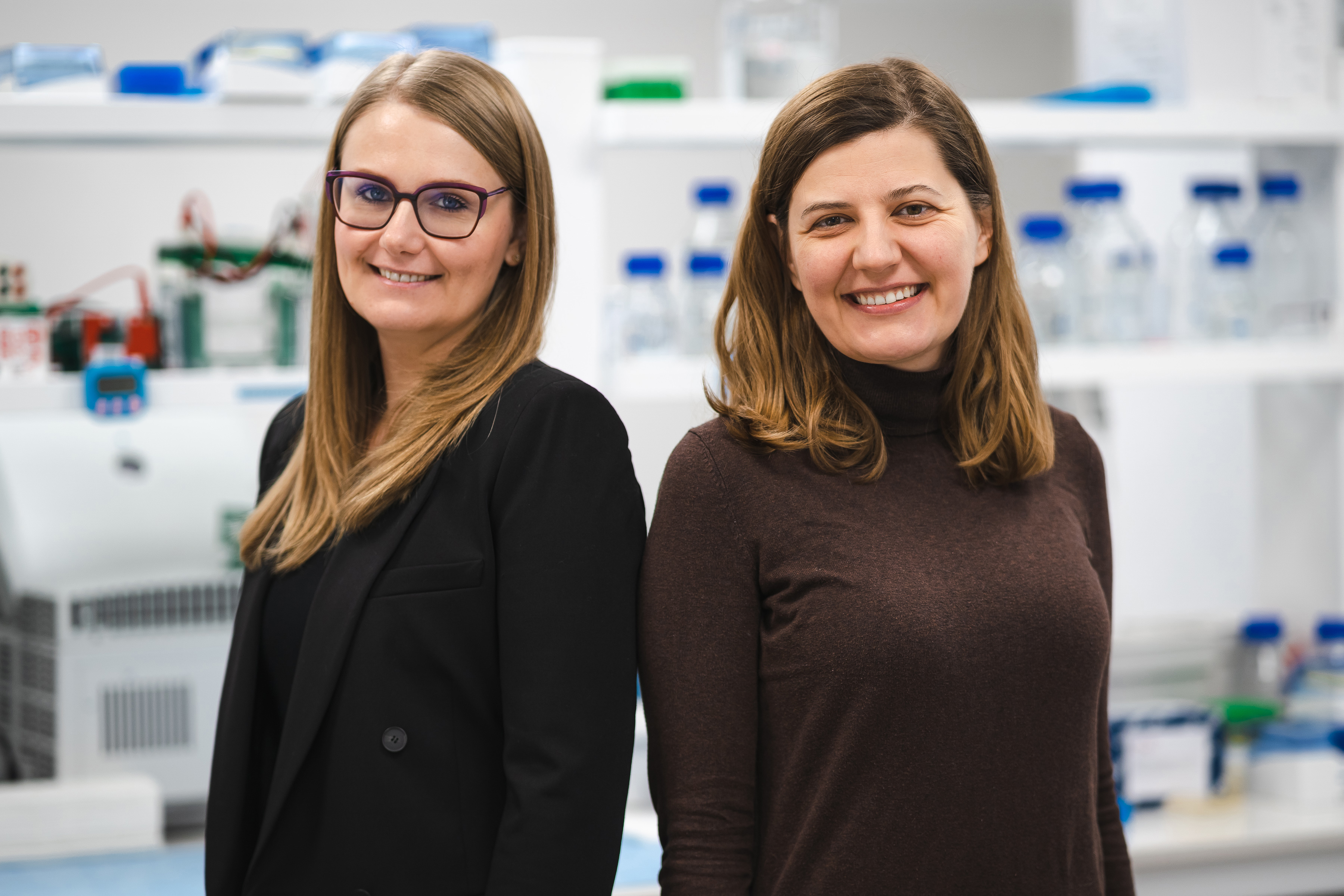Aleksandra Kołodziejczyk and Ewelina Małecka-Grajek among the laureates of EMBO Installation Grants
Aleksandra Kołodziejczyk and Ewelina Małecka-Grajek have received Installation Grants from the European Molecular Biology Organization (EMBO). The support package, amounting to 50 thousand euros annually, will enable the Polish scientists to expand their newly established laboratories. Polish researchers were among an elite group of ten academics from across Europe honoured by EMBO.
Dr. Ewelina Małecka-Grajek received a grant for the research project: “From the dynamics of bacterial RNA degradation to gene expression manipulation tools."
“EMBO Installation Grant will play a pivotal role in advancing our understanding of how biological processes in bacteria are interconnected. The funding will aid research aimed at uncovering fundamental mechanisms, ultimately paving the way for innovative antimicrobial therapies”, said the IIMCB researcher. “Moreover, I am excited to join the EMBO Young Investigator Network, offering unparalleled opportunities for training, collaboration, and the recruitment of new laboratory members”, she added.
Dr. Aleksandra Kołodziejczyk will work on the project: "Role of microbiota in the progression of liver disease". In her laboratory she is investigating the bidirectional crosstalk between the liver and the intestine, focusing on the role of resident microbiota, exploring how shifts in bacterial composition and changes in intestinal physiology affect liver cells and how liver health contributes to the homeostasis in the gut. “The EMBO grant is important to me because it is flexible and offers many opportunities for the utilization of funds, which greatly facilitates research. It is unique when scientists are entrusted with such confidence.” – she emphasized.
The EMBO grant will provide significant development support for the two laboratories. The researchers will become part of the EMBO Young Investigator Network, where they will benefit from networking opportunities, training in research leadership and management skills, and access to core facilities at the European Molecular Biology Laboratory in Heidelberg.
This is not the first EMBO grant for IIMCB researchers. Wojciech Pokrzywa, leader of the Laboratory of Protein Metabolism, was an EMBO beneficiary in 2017. – “Receiving the EMBO Installation Grant was a pivotal moment in my career,” he said “It not only allowed my lab to flourish but also expanded my scientific network, leading to valuable collaborations and impactful publications. This grant gave me the freedom and sense of scientific independence I needed to explore innovative ideas. It was instrumental in my development as a researcher and played a crucial role in securing further grants, marking a defining point in my professional journey,” underlined Polish scientist.
This year, the grants will fund laboratories in the Czech Republic, Greece, Hungary, Lithuania, Poland, Portugal, and Turkey. The research areas include aging, tumor biology, gut-brain axis communication, microbiota, and gene editing tools.
"We are delighted that these exceptional scientists are supported by EMBO. We promote excellence in the life sciences in all parts of Europe and beyond, and look forward to the contributions of the new installation grantees. Their research will undoubtedly both strengthen the life sciences in their respective countries and enrich our wider scientific community," said EMBO Director Fiona Watt.
More about EMBO: www.embo.org


